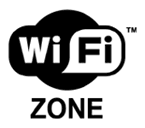
In the beginning was the dial-up. Then dial-up begat DSL, and DSL begat the cable modem. And now, we have arrived in the land of milk and honey…and Wi-Fi.
The problem is that Memphians will probably have to travel to other cities to take optimal advantage of it. While Wi-Fi is hardly the new, new thing, if Memphis is to jump on board, it would be exciting if we would do it sooner rather than later.
As we have mentioned here previously, our city has the tendency to take an idea and wring all imagination and innovation out of it. We want to see what “best practices” exist. We want to benchmark other cities. We want to facilitate a process to develop values first.
It’s a strange phenomenon, particularly in light of the fact that the history of Memphis has been defined and redefined by breathtaking bursts of creativity – and we’re talking about business, not music. Memphis had the first self-service grocery, the first drive-in, the first bus line and the first motel, and coming all the way to the present, FedEx and AutoZone.
And yet, somehow, this entrepreneurial spirit, which changed world culture – just consider motels alone – never became part of the DNA of the body politic. As one long-time participant in public affairs here observes, “We run on a 20-year delay. We always seem to be that long behind every one else. We are content to be on the second or third wave of something new.”
Which brings us back to Wi-Fi. Up the road, Nashville is now forming the Task Force on Telecommunications to make a decision on a city-backed broadband network. Its charge: to explore the feasibility of the city building a broadband network that the public could access. It’s a network intended to be high-speed and bandwidth-intensive, making Internet service more affordable, accessible and ubiquitous anywhere inside Nashville.
A couple of weeks ago, the Washington Post reported that about 300 cities are now exploring whether to build their own broadband networks. Momentum has quickened in the wake of Philadelphia pioneering Wi-Fi as part of its basic infrastructure.
With its single decision to the become the first major city to begin development of a wireless Internet system, Philadelphia positioned itself on the vanguard of cities appealing to young, mobile, techno-savvy workers. It's now the largest Wi-Fi hotspot in the world.
Recently, Google offered to blanket San Francisco with free wireless Internet access at no cost to the city. It raised speculation that Google may intend to create a free national Wi-Fi network, which would challenge service providers like Earthlink, Comcast and America Online. If Google isn’t already an impact player in its industry, its plans could make it as essential for most Americans as electricity. Like Philadelphia, San Francisco is using Wi-Fi as another notch in the city’s technology belt, but equally important, it’s also called a way to dynamite the digital divide.
The stampede of cities trying to join Philadelphia and San Francisco includes a number of big-time cities. And even more mid-sized ones. But the list doesn’t include Memphis, already suffering from a perception by young workers that we are lethargic and stuck in time.
Here’s hoping that Memphis isn’t content to wait for Google to arrive on our doorstep before it deals with broadband access, which is to the 21st century what the telephone to the 20th century. As proponents say, government’s building of broadband services is equivalent to government financing and building the nation’s most basic infrastructure – roads.
Of course, commercial broadband companies aren’t taking this lying down. In Pennsylvania and Virginia, they were even successfully in passing laws that blocked cities in those states from offering telecom services in places where services aren’t already available. This in effect forced Philadelphia to look for a partner, which it found in the form of Earthlink. But in getting in early, Philadelphia’s already has a competitive advantage.
The high stakes competition for this business promises to get even more volatile. Already, a Republican Texas Congressman has introduced a bill that would prevent cities from getting into the Wi-Fi business at all unless there are no private companies offering the service.
Google’s concept of free service doesn’t match any business model that presently exists. Of course, the business model for FedEx didn’t exist either. Or Holiday Inns. Or AutoZone.
While the future promises a lively debate about which path to take to Wi-Fi – city-owned, telecom industry-driven or a mutation, and some of the answers aren’t clear, let’s at least get into the discussion.
The words of Nashville Metro Councilman David Briley seem especially pertinent to Memphis. He put it this way: “It’s something you don’t want to look back on 20 years from now and say, ‘Whoa, we should have done something.’”



2 comments:
It's pretty hard to compare the creation and innovation of individuals to anything determined by committee. What's the old saw about designing a horse by committee?---you get a giraffe.
About 8 months ago Democracy for Memphis started a letter writing campaign directed towards the state legislature. There was a bill which prevented municipalities from building Wi-fi infrastructure. This was especially important for rural communities where the cable companies had no intention of running high speed internet lines. If I remember correctly, the bill passed. So I don't think any city in Tennessee will be able to work off the Philadelphia model.
Post a Comment